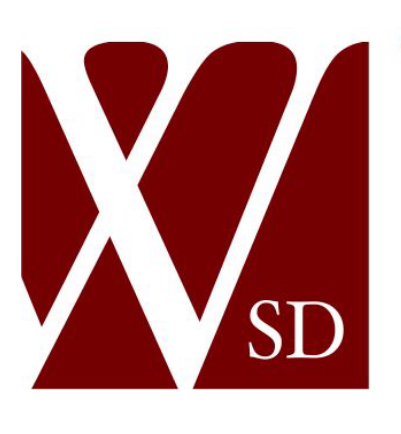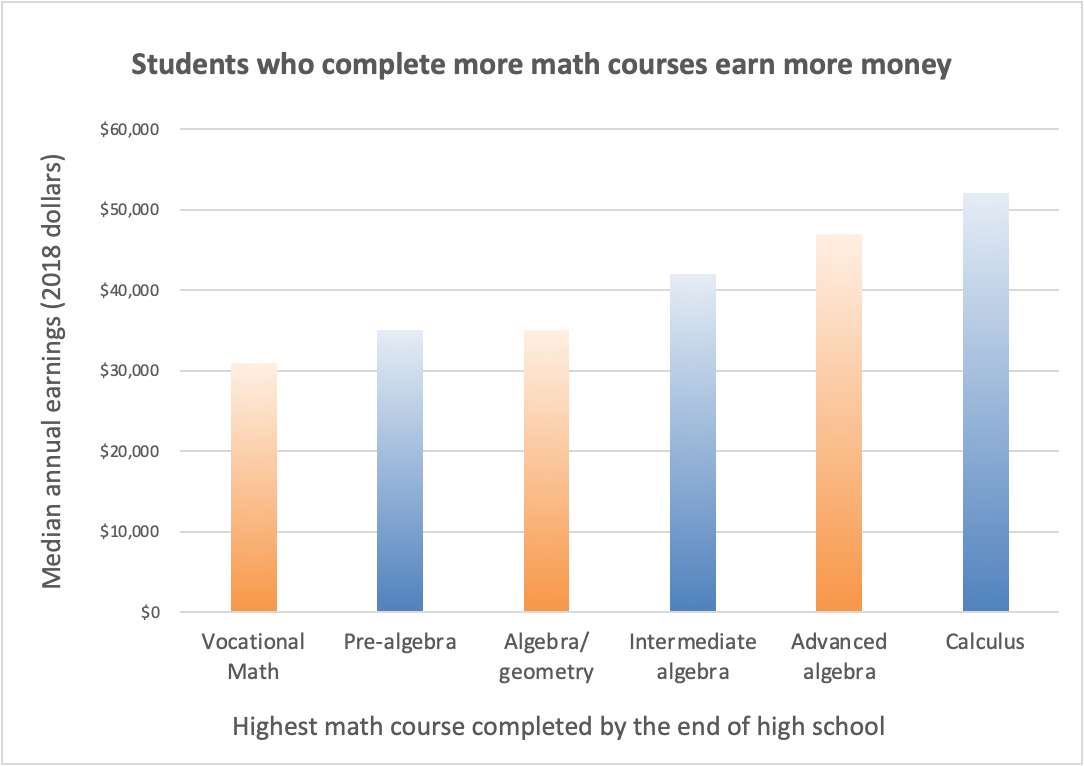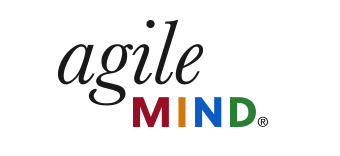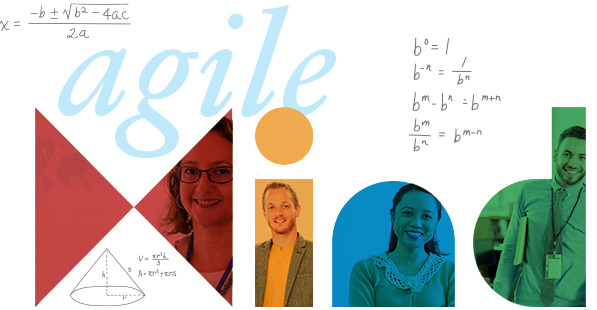Author: Am Norgren
Director of Professional Services
Transforming Opportunities Through High School Mathematics
When Michael first entered his freshman mathematics classroom at Wahluke High School in Central Washington, he had limited confidence in his ability to succeed in math. Early in the year, he expressed great self-doubt, often asking questions like, “Is this right? Can you double check my work?” Michael rarely wanted to make choices for himself.
Overlooking the Columbia River, Wahluke School District serves a predominantly Latino community of learners—many of them members of families from Mexico and Guatemala. Half are migrant students, and 90% qualify for free and reduced-price lunch. Like Michael, many culturally and linguistically diverse students don’t get adequate support to facilitate their cognitive and academic growth. That, according to Zaretta Hammond, an expert in equity, literacy, and culturally responsive teaching, “is the achievement gap in action.”
Implementing Agile Mind’s Intensified Algebra I (IA) program with 9th grade students
In 2015, the district received a grant from the College Spark Foundation and the State Office of Public Instruction to dismantle barriers to achievement in mathematics and equip its learners for success in higher education. Wahluke High School began implementing Agile Mind’s Intensified Algebra I (IA) program with 9th grade students who were seen to be at high risk of failing Algebra I: those who entered the course 2-3 years behind grade level, many with little conviction they could succeed in mathematics.

Michael’s teacher, Daisy Pfeifer, was the initial lead teacher for Intensified Algebra I, and she has taught with the program for each of the last 6 years. For Mrs. Pfeifer, the life experiences and backgrounds of her students are assets. Despite challenges, she and her students have formed a strong learning community that has not only survived, but has strengthened throughout students’ high school careers.
This learning community enabled Michael to become more comfortable in class. As he moved through his freshman year, he gained confidence in justifying answers, explaining his perspective to others, and learning from mistakes. By the end of the year, Michael had succeeded, significantly out-performing expectations.
Intensified Algebra I has dramatically shifted the mathematics learning trajectory of many of Mrs. Pfeifer’s students. More than half of the students in Michael’s freshman year IA class chose to take a fourth year of high school mathematics, despite the fact that it is not required for graduation in the state. Even before considering the impact of higher education, four years of high school mathematics pays dividends: students who do so rather than simply passing two state-mandated math courses make $10,000-$15,000 more each year during their professional careers.

Additionally, 75% of Michael’s freshman year IA class have a 3+ grade point average.
Mrs. Pfeifer attributes students’ success, and their investment in continuing with mathematics, to the learning culture that started in her Intensified Algebra I classroom.
Michael was recently accepted to the University of Washington, which will make him the first in his family to attend college. After succeeding in four high school mathematics courses, Michael says this about his journey:
“I can’t imagine succeeding in my math classes without taking Intensified Algebra I my freshman year. The class environment helped my peers and me challenge ourselves while gaining confidence to ask for help!”
In reflecting on her teaching, Mrs. Pfeifer shared:
“You hope they know you are there for them, but, at the end of the day, they are making choices for themselves.”
With Mrs. Pfeifer at the helm, Wahluke students are prepared to make those choices for many years to come.
Learn more about Intensified Algebra I, a major initiative of the Charles A. Dana Center at The University of Texas at Austin, the Learning Sciences Research Institute at the University of Illinois at Chicago, and Agile Mind.



